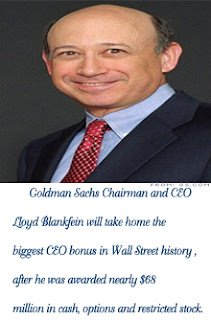Citigroup, JPMorgan and BofA cancel plans for a mortgage backed securities rescue fund, but leave the door open in case of more credit woes.
By David Ellis and Ben Rooney, CNNMoney.com staff writers
NEW YORK (CNNMoney.com) -- The Wall Street consortium seeking to establish a bailout fund for troubled mortgage securities announced it would abandon efforts to establish the so-called "Super- SIV" fund, adding that it could revisit the solution if credit market conditions worsened.
SIV" fund, adding that it could revisit the solution if credit market conditions worsened.
In a statement issued late Friday, the consortium, which includes Citigroup (C, Fortune 500), JPMorgan Chase (JPM, Fortune 500) and Bank of America (BAC, Fortune 500) said the rescue fund is "not needed at this time."
In recent weeks, a number of banks that sponsor or own these SIVs, or structured investment vehicles, have developed their own solutions including selling assets or finding other sources of liquidity.
Citigroup, for example, announced late last week it would take the $49 billion in assets held by its seven SIVs onto its balance sheet.
The group, however, remained open to revisiting the "Super SIV" or Master Liquidity Enhancement Conduit, if needed.
"The consortium will continue to monitor market conditions and remain committed to work collaboratively on any appropriate solutions, including an activation of MLEC, if needed," the group said in a statement.
The news, which was first reported by The Wall Street Journal, comes just days after the three banks and BlackRock (BLK), the fund's investment manager, tried to downplay recent talk that the rescue fund was jeopardy.
The companies had said Tuesday they were committed to the rescue fund, adding it would launch in several weeks.
SIVs typically issued debt in the commercial paper market, becoming a key source for short-term financing, the proceeds of which were used to buy higher-yielding, long-term assets, such as mortgage-backed securities.
But following this summer's credit crisis, the market for these securities and notes issued by SIVs dried up, hence creating the need for a rescue fund.
With the backing of the Treasury Department, the three banks announced the creation of the "Super SIV" in October. It was designed to hold the shaky mortgage assets that were owned by these banks' off-balance sheet investment funds, or SIVs, until investors could get a better sense of the default rate of the mortgages backing these bonds and other securities.
Calls to the Treasury Department for comment were not immediately returned.
The plan, however, had plenty of critics, including former Federal Reserve chief Alan Greenspan, who suggested that the "Super SIV" could do more harm than good.
Ultimately, the rescue fund was intended to be an important first step in wooing debt investors back into the market, but some claimed that it was ultimately a bailout for these banks.
 SIV" fund, adding that it could revisit the solution if credit market conditions worsened.
SIV" fund, adding that it could revisit the solution if credit market conditions worsened.In a statement issued late Friday, the consortium, which includes Citigroup (C, Fortune 500), JPMorgan Chase (JPM, Fortune 500) and Bank of America (BAC, Fortune 500) said the rescue fund is "not needed at this time."
In recent weeks, a number of banks that sponsor or own these SIVs, or structured investment vehicles, have developed their own solutions including selling assets or finding other sources of liquidity.
Citigroup, for example, announced late last week it would take the $49 billion in assets held by its seven SIVs onto its balance sheet.
The group, however, remained open to revisiting the "Super SIV" or Master Liquidity Enhancement Conduit, if needed.
"The consortium will continue to monitor market conditions and remain committed to work collaboratively on any appropriate solutions, including an activation of MLEC, if needed," the group said in a statement.
The news, which was first reported by The Wall Street Journal, comes just days after the three banks and BlackRock (BLK), the fund's investment manager, tried to downplay recent talk that the rescue fund was jeopardy.
The companies had said Tuesday they were committed to the rescue fund, adding it would launch in several weeks.
SIVs typically issued debt in the commercial paper market, becoming a key source for short-term financing, the proceeds of which were used to buy higher-yielding, long-term assets, such as mortgage-backed securities.
But following this summer's credit crisis, the market for these securities and notes issued by SIVs dried up, hence creating the need for a rescue fund.
With the backing of the Treasury Department, the three banks announced the creation of the "Super SIV" in October. It was designed to hold the shaky mortgage assets that were owned by these banks' off-balance sheet investment funds, or SIVs, until investors could get a better sense of the default rate of the mortgages backing these bonds and other securities.
Calls to the Treasury Department for comment were not immediately returned.
The plan, however, had plenty of critics, including former Federal Reserve chief Alan Greenspan, who suggested that the "Super SIV" could do more harm than good.
Ultimately, the rescue fund was intended to be an important first step in wooing debt investors back into the market, but some claimed that it was ultimately a bailout for these banks.
